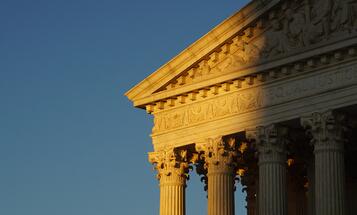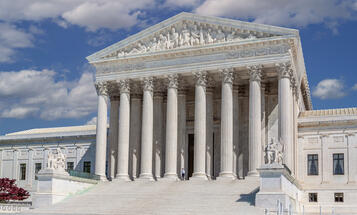
On the Cusp of Change in DC
DC’s City Council is closer than ever to having publicly-financed political campaigns.
Washington DC is on the cusp of making a big, systemic change to its local elections.
One that will strengthen local democracy by reining in the influence of big money, empower small donors to participate, and break down barriers for people of color and women to run for office.
DC’s City Council is closer than ever to having publicly-financed political campaigns. A super-majority on the Council introduced the DC Fair Elections Act of 2017 back in March of 2017. The Fair Elections Act would create a voluntary, small-donor matching program for local elections.
Under the program, candidates would agree to take only small donations in exchange for a 5-to-1 match, paid for through a public fund, along with a start-up grant—a cost that amounts to 0.006 percent of the city’s annual budget. The program would be available to candidates running for mayor, attorney general, Council or the DC State Board of Education. More than 27 states, counties and municipalities empower small donors and curb the power of big money in politics through similar programs.
Fair Elections would make DC’s political system more equitable by increasing the racial diversity of those who donate money to local candidates. Currently, DC’s donor class is whiter, wealthier, older and more male than the District’s population. More than 60 percent of campaign contributions come from either individuals who don’t live in DC, or from corporations and PACs, while only 5 percent come from voters giving $100 or less.
In June, the Council hosted a public hearing on fair elections, where the public turned out in large numbers to support the measure.
But the big action came last week. On Wednesday December 13th, the Council Committee on the Judiciary and Public Safety voted 5-0 to move the Fair Elections Act to the full Council for a first vote at the next Council legislative meeting, currently scheduled for January 9th. The second and final vote for approval is expected soon after.
While the bill passed commitee unanimously, there was one small dust-up over policy. Here’s a breakdown of the brief scuffle, courtesy of WAMU:
The only debate on the bill stemmed from an amendment proposed by Council Member Mary Cheh (D-Ward 3), who said she opposed a program that offers both a lump-sum payment and then matching public funds. She proposed limiting it to matching funds, and at a higher rate of 6 to 1.
But her amendment was roundly opposed, including by Councilmember Vincent Gray (D-Ward 7), who said he worried that not offering a lump-sum payment would have a disproportionate impact on candidates east of the Anacostia River, where incomes and contributions to campaigns are lower.
“For candidates who have low name recognition, I think it’s going to be difficult for them to raise enough matchable donations to make the program viable,” he said.
Gray’s point about the importance of start-up grants is backed up by the facts. Start-up grants are key to the program’s success because they allow candidates without wide name recognition to be more viable. Eliminating these lump-sum payments could reduce participation, a key metric of program success. Candidates who need the start-up grants to raise enough to compete would be deterred from participation.
As important, his concern that the proposed amendment would undermine candidates “east of the Anacostia River, where incomes and contributions to campaigns are lower” speaks to a theme of racial equity that has been central to fair elections supporters.
In late November, the DC Fair Elections Coalition convened a town hall meeting on fair elections in precisly the area of the city that Gray referenced and represents, southeast DC, a predominantly black and working-class enclave. Almost 100 people from the community packed a basement room in the Anacostia Library to hear about the importance of the DC Fair Elections Act from a panel that included elected officials, former candidates, a clergy leader and an affordable housing organizer. The discussion was about power and the real-world impact of having a government that caters only to rich and wealthy.
"Folks believe because I don't have money or I don't have influence in the halls of power, there's no need for me to engage, no need for me to invest, no need for me to ask questions, or the worst part—no need for me to vote,” explained panelist Markus Batchelor, Ward 8 Member DC State Board of Education. “With this program,” he said, “you've only got $10 or $20—that's going to make a difference. That helps build back up our civic life."
During the immediate run-up to the committee vote, more than 80 community leaders signed a public letter urging Mayor Muriel Bowser and the DC Council to support the legislation on the grounds of racial equity.
One of the signers, Jeannette Mobley, Chair of the Ward 5 Democratic Committee, explained that she “supports Fair Elections because it offers small donors, which quite often are people of color, women and seniors, an opportunity to contribute to qualified candidates."
The DC Council and Mayor would be wise to heed the words of leaders like Batchelor and Mobley and pass fair elections come January. And it doesn’t hurt that the Washington Post strongly endorsed DC fair elections this past weekend.



